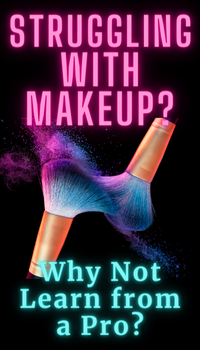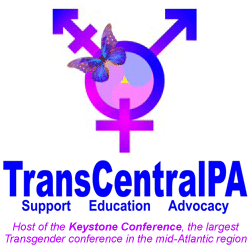Initially Speaking: LGBTQQIAA vs. MOGII
You may not have noticed it yet but there is a movement afoot among mental health and medical circles to change the initialism LGBTQQIAAP to various other initialism/acronyms. (In researching this post, I learned that LGBTQQIAAP is technically an initialism because each of the letters is pronounced separately. An acronym is usually pronounced as one word.) Here are a few of the suggested replacement initialism/acronyms:
- Marginalized Orientation, Gender Identity, and Intersex (MOGII)
- Gender and Sexual Diversities (GSD)
- Gender and Sexual Minorities (GSM)
- Marginalized Orientations, Gender Alignments, and Intersex (MOGAI)
- Sexual Orientation, Gender Identity, and Sex Characteristics (SOGIESC)
GSM is in active use by the U.S. NIH and FDA but the one that seems to have the most traction among mental health practitioners is MOGII. Recent Pride celebration at Dalhousie University in Canada was called MOGII Pride. So, should we switch over to a shorter initialism or acronym?
Admittedly the initialism LGBTQQIAAP is becoming a bit unwieldy and seems to be growing in length every couple of months, but I believe that there are good reasons for keeping it. The primary reason for keeping it is that it refers to potentially objective, observable behaviors and anatomical phenomena. To put it simply, I know it when I see it (or at least I would know it if I saw it.) Science, as yet, has no way of objectively getting into people’s heads and directly observing gender identity. Maybe someday.
Verbal reports of identity are useful but ambiguous. Do they refer to daydreams, fully felt desires or a summary of one’s observable behavior? Is a feeling of one’s identity sufficient to motivate transgender behavior? I am not a strict behaviorist, but science has long since rejected the use of introspection without observing aligned objective behavior. Science gets into all sorts of trouble if we use the term “identity” because it has at least two meanings. I believe we use it to indicate that we practice transgender behavior which has a biological underpinning. But sociologists use it to mean simply that someone is associated with a place or concept, as in: I identify as a soccer fan or I identify as a Methodist, or I identify as an Atlantan. It is quite useful to know these identifications in a survey so that people will know that I am likely to subscribe to certain TV channels that feature soccer games or buy an Atlanta United soccer jersey but none of these meanings imply a biological trait. Then there is the Rachel Dolezal business about claiming racial identity, even though there are no such things as true races. We are all descended from a dozen folks from Africa, millions of years ago and skin color is not a barrier to reproduction.
The second reason for keeping the long initialism of LGBTQQIAAP is that the initialism is not associated with pathology although many of the terms were previously pathological terms. As I have pointed out several times in this blog, the word identity comes right out of psychopathological theory and was handed down from Freud to Erikson to Richard Green. These guys and other psychiatrists brought you such terms as “gender identity disorder” and “gender dysphoria” which are listed as disorders or diseases. They are often used to insinuate that transgender people are somehow diseased. Transgender people are good at depathologizing and reusing words (transgender is one of them) but it has been a long struggle to get these terms out of the DSM and ICD and we are still not completely there yet.
The third reason for keeping LGBTQQIAAP and its future versions is that it has political meaning. The groups in the acronym all have one thing in common and that is to insure human rights guaranteed by the U.S. Constitution, U.N. Universal Declaration of Human Rights, and the Yogyakarta principles. They seek to get governments to recognize those rights. Most of the initials stand for groups of people (e.g. gay, transgender, pansexual), who generally have their own organizations, and join together to improve and defend civil rights for themselves. They also cooperate with the other groups in the initialism to achieve their goals. If they can stick together long enough to achieve their ends, they often achieve better civil rights conditions for all people. It does not imply that the groups have a lot in common except that lawmakers do not take their needs into consideration in their haste to garner votes from bigger blocks of voters or only consider their own religious beliefs. Alliances of these groups are not always successful in accomplishing their goals because the alliances can be fragile. Case in point is ENDA in which T people were thrown under the bus by GLB oriented organizations and “supporting” Representatives in the House of Representatives (e.g. Barney Frank). There are also competitions among the organizations within each group for missions and donations. But from time to time, they successfully work together. The use of new initialisms/acronyms would tend to erase the individuality of the groups which constitutes their strength and the strength of their alliances.
The fourth reason for keeping the long acronym is that some of the terms draw conclusions about marginalization and minority status. The connotation is that these are permanent conditions. What are they going to do if culture changes and we are no longer marginalized or in the minority on civil rights issues? Change to “Previously” Marginalized Orientation, Gender Identity, and Intersex or, like Prince, the people formerly known as MOGII?
Since, as far as we know, LGBTQQIAP is forever, this smacks of repathologization and an attempt by mental health professionals to reassert their control. Mental health professionals have sheltered us in at times in the past but it is time that we controlled our own destiny. Like the old military saying: lead, follow or get out of the way. They can best help us now by following as allies.
In the medical community, the NIH and FDA are now using GSM. The rationale for why they use GSM instead of LGBTQQIAAP or separate terms and the reason why many transgender people have been unable to give blood will be the subject of a future post. Essentially the NIH and FDA who fight STDS and HIV and who set blood donation criteria are in the dark ages. They seem unable to sort out LGBTQQIAAP people or believe their sexual behavior reports. They regard all transgender people to be “men who have sex with men.” Never mind your original birth certificate or your current sex marker identification documents. If you are a MTF you they considered you a male and if you are a FTM you are also considered a male. The same with genderqueer. It is yet another form of pathologization which needs to change. Good thing I lied about being transgender when my mother needed backup blood for an operation. (I knew that I was disease free from a previous blood test and my sex history.)
So, the long initialism of LGBTQQIAAP is likely to continue and grow and so it should.
The more people and groups who are working to defend and enhance civil rights, the better. Better, not just for LGBTQQIAAP but for all people of the world.
Dr. Dana Bevan is the author of The Transsexual Scientist, The Biopsychology of Transgenderism and Transsexualism, and Being Transgender. All are available Amazon.com.
Moved to make a comment? Login here and use the comment area below.
Category: Transgender Body & Soul, Transgender Opinion










